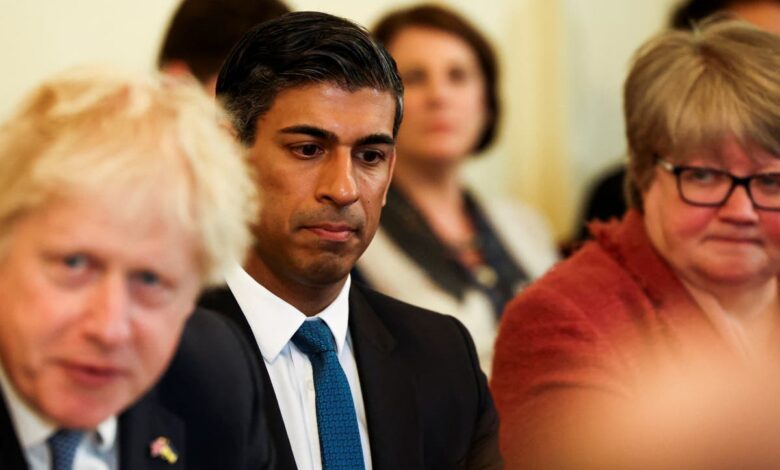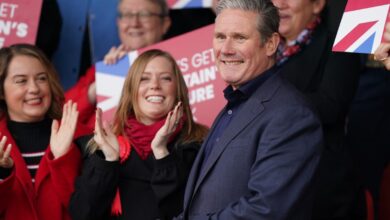Rishi Sunak says government can’t stop inflation as clamour grows to help poorest

Rishi Sunak has said there is nothing the government can do to stop the wave of inflation sweeping over Britain’s families, as he resists clamour from Tory benches — including former chancellor Kenneth Clarke — for urgent help for those struggling with rising prices.
Instead, Mr Sunak used a speech to the CBI to promise tax breaks for business in the autumn budget, aimed at stimulating sluggish productivity.
As inflation topped 9 per cent for the first time in 40 years, and experts warned that the true rise in living costs was closer to 11 per cent for the poorest families, the chancellor said he was powerless to stem global pressures such as the Covid pandemic, war in Ukraine and supply chain disruption.
“There is no measure any government could take, no law we could pass, that can make these global forces disappear overnight. The next few months will be tough,” he said.
His comments came after Bank of England governor Andrew Bailey said he felt “helpless” to stop inflation.
His comments came as former Tory chancellor Kenneth Clarke made a dramatic intervention, calling for welfare increases for the worst-off and dismissing Mr Sunak’s 5p cut in fuel tax and promised 1p reduction in income tax as “a complete waste of time”.
“I would have done it in the spring statement, raised Universal Credit,” he told LBC radio. “The people you’ve got to protect from any fall in living standards if you can are of course the poorest of the poor and the lowest paid.”
Tory backbencher Robert Halfon, chair of the Commons education committee, said a windfall tax on energy companies to help the poor pay their bills was now a “no-brainer”.
He said he recognised government concerns that a levy on North Sea firms could deter investment, but added: “Desperate times call for desperate measures and we must do this, and we must do it quickly,”
Treasury committee chair Mel Stride told The Independent it was “definitely” time for the chancellor to implement a windfall levy and “channel savings in government into transfer payments targeted on those most impacted” by soaring prices.
And senior Tory Sir Bernard Jenkin called for a £13.5bn “summer package” of support for the most vulnerable, including the reinstatement of the £20 uplift to Universal Credit scrapped by Mr Sunak in October and the abolition of VAT on domestic fuel.
Without action now, he warned MPs, “we are creating possibly a worse recession than is already expected”.
Paul Dales, chief UK economist at Capital Economics, told The Independent the Treasury should reconsider the effect of its cost-of-living policies.
“They need to come up with more measures to support those who need it most, not those actions which are going to make their core supporters happier.
“Prices are rising at a faster rate than incomes. Consumer confidence is already at the second lowest level on record before we’ve even seen inflation peak.
“You need interest rates to be higher to bring inflation back down,” he said, adding that the Bank of England’s key rate ought to rise as high as three per cent in the months ahead.
Several leading economic think tanks, including the Institute for Fiscal Studies and the Resolution Foundation have warned that inflation is now hitting the poorest households more severely than their richer counterparts.
The IFS said it was now clear that inflation is “hitting the poorest households harder”.
The think tank found, the bottom 10 per cent of UK households (by income) faced an inflation rate of 10.9 per cent in the 12-months to April. This was 3 percentage points higher than the inflation rate experienced by the richest 10 per cent.





